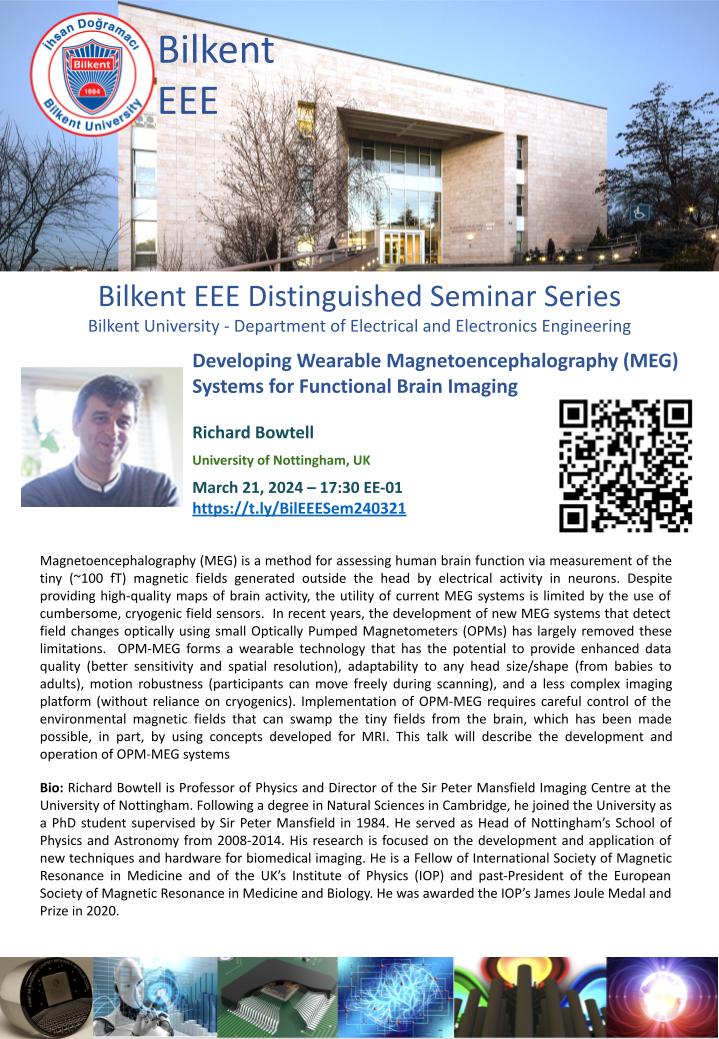
Richard Bowtell
University of Nottingham, UK
Date/Time: March 21, 2024 – 17:30
Place: EE-01
Developing Wearable Magnetoencephalography (MEG) Systems for Functional Brain Imaging
Magnetoencephalography (MEG) is a method for assessing human brain function via measurement of the tiny (~100 fT) magnetic fields generated outside the head by electrical activity in neurons. Despite providing high-quality maps of brain activity, the utility of current MEG systems is limited by the use of cumbersome, cryogenic field sensors. In recent years, the development of new MEG systems that detect field changes optically using small Optically Pumped Magnetometers (OPMs) has largely removed these limitations. OPM-MEG forms a wearable technology that has the potential to provide enhanced data quality (better sensitivity and spatial resolution), adaptability to any head size/shape (from babies to adults), motion robustness (participants can move freely during scanning), and a less complex imaging platform (without reliance on cryogenics). Implementation of OPM-MEG requires careful control of the environmental magnetic fields that can swamp the tiny fields from the brain, which has been made possible, in part, by using concepts developed for MRI. This talk will describe the development and operation of OPM-MEG systems
Bio: Richard Bowtell is Professor of Physics and Director of the Sir Peter Mansfield Imaging Centre at the University of Nottingham. Following a degree in Natural Sciences in Cambridge, he joined the University as a PhD student supervised by Sir Peter Mansfield in 1984. He served as Head of Nottingham’s School of Physics and Astronomy from 2008-2014. His research is focused on the development and application of new techniques and hardware for biomedical imaging. He is a Fellow of International Society of Magnetic Resonance in Medicine and of the UK’s Institute of Physics (IOP) and past-President of the European Society of Magnetic Resonance in Medicine and Biology. He was awarded the IOP’s James Joule Medal and Prize in 2020.